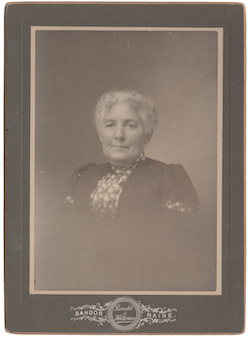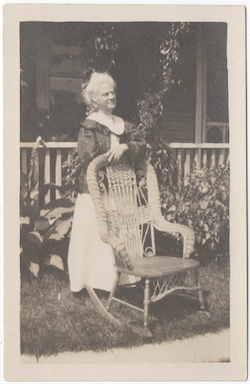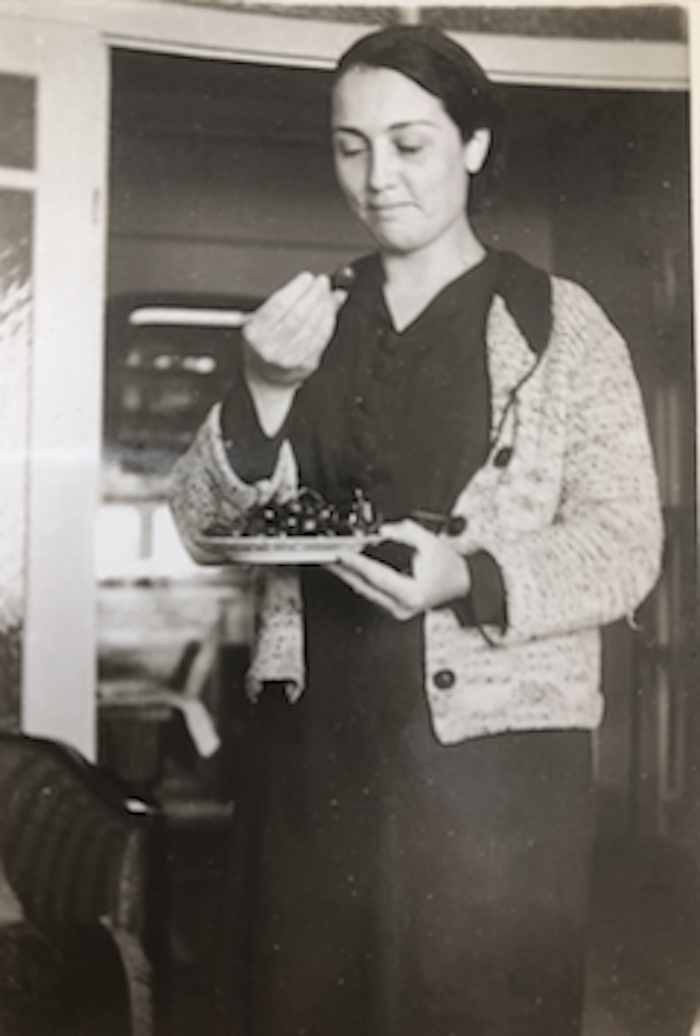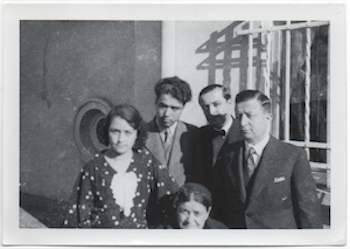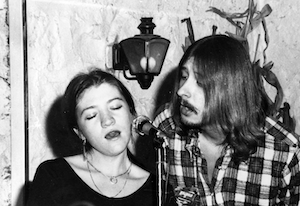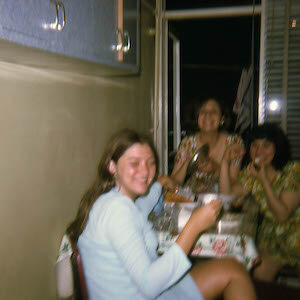What’s My Name?
How many of you know my real name? Raise your hands. Some of you know me as Louise, my family calls me Heidi, my husband calls a number of things, like Gertie, or Scoot, my Italian friends call me ‘Haidee,’ my Turkish family calls me Hayat, and to my college friends I am known as Lou, or Electric Lou. Many dear to me have called me Weeze.
The truth is my real name is all of the above – and the source of my life-long issues with identity. Other factors make knowing who I am a challenge. I was born in Turkey, grew up Italy, spent four miserable years in Germany as a miserable teenager, and an infinitely more miserable year as a senior at a high school in Pennsylvania. Back and forth, one name and then another, one country, one state, different homes. Is it any wonder that I confuse who I am, or where I am from? Read my recent essay, The Crisis of Identity, published in The Broken Plate.
My full given name is Louise Hayat Turan. The “Louise” is after my mother, Sarah Louise, who was named for her mother’s mother, Sarah Ann Heming, and Louisa Abigail du Plessis, her father’s mother. The Hayat is my Turkish grandmother, my father’s mother, who was named Hayati. There’s a funny story in all this, but first bear with me through some history about the Haleys, the Turans and the Wines.
Louisa Abigail du Plessis, 1890s; Sarah Ann Hemming, my great grandmother, and my mother’s grandmother, 1930s; Hayati Güngör Turan, 1920s.
My maternal grandfather, Millard Upton Haley, was born in 1879 in Princeton Maine, son to James William, known as William Jr., and Louisa Abigail du Plessis from New Brunswick. Millard and his siblings grew up in a house built by his father in 1890 (according to a deed) on 35 School Street, where it stands today in very good condition. I know because I was there.
In 2014, a writer’s retreat (featuring my friend and author Brock Clarke, who has a new book coming out) at Grand Lake Stream gave me the opportunity to go to Princeton. Armed with a photo, I went to the Town Hall, the Princeton library and met with a number of locals who, unfortunately, did not recall the Haleys. But I did find useful information in the well-kept historical records at the library (a one room building with a very dedicated librarian named Elizabeth) and with help from the Town Hall, located my grandfather’s house on School Street. To my dismay, the current owners were not home but I stood nearby, pretending to be in his shoes, bringing a longed-for connection to life not only for me but for my mother. He died when she was five.
My great grandfather William, pictured here with three of his six children. Most likely Grette L., Lotty A. and Olive B. William and his wife Louisa arrived in Princeton, Maine in 1862 from New Brunswick (English Canadian).
In 1952, right before her wedding and planned move to Turkey, she wrote to her father’s sister Olive (born 1875). In the letter she asks Aunt Ollie, as she was known, for more details about her father’s heritage. Perhaps she wanted to be prepared for questions about her background that would be asked of her by future Turkish relatives. Ollie wrote back that their mother, Louisa Abigail of New Brunswick, Canada, was of Scottish descent on her mother’s side, a McIntyre, and of French descent, a du Plessis, on her father’s (there were many Catholic Scots and French immigrants living in New Brunswick from the 1600s on). Aunt Ollie wrote that she remembered her mother telling her that the du Plessis family was of noble birth and related to Cardinal Richelieu but were forced to leave France when Louisa Abigail’s grandfather married a woman from a convent and disgraced the family. All the papers, including bank account information, which would have given them access to great wealth, were lost when their boat capsized crossing a frigid river somewhere in Novia Scotia. Whether this story is true or not we will never know; however, in researching its origins I did find a huge trove of history about the du Plessis family, dating back to the 17th century in France.
I know almost nothing about my father’s mother, Hayati Güngör Turan, except that she was breathtakingly beautiful. I believe she was born in Isparta and had at least one brother, Mehmet Saim Güngör. According to my cousin Gülin, my father was devasted when his mother died, believing he was to blame. After he died, I found a letter in his wallet from his mother dated November 11, 1945. At the time he had recently moved from the family apartment building in Ankara to Istanbul where he was attending medical school. She writes that she hopes it’s a nice apartment and will come see it as soon as she is better. She adds that she is taking treatments and not to worry. There is a postscript, a message from a woman named Rushar, thanking him for sending her a magazine. Rushar, a married woman with a small child, who also lived in the family’s apartment building in Ankara, was my father’s mistress. Everyone knew it and feared a scandal. Gülin told me his mother went as far as hiring a spiritualist to cast a spell on her son so he would stop the affair. Sadly, she died nine months later. Two years after that, my father left Turkey for a residency at the George Washington University Medical School. The spell must have worked because my father met and fell in love with my mother, Sarah Louise Haley.
My grandmother Hayati, with my grandfather Kemal Turan to the right. At bottom is my great grandmother Babanne. I believe her brother is standing behind my grandfather. 1920s.
Cousin Gülin, 1940s.
My grandmother on my mother’s side was named Ruth Barrett Wine. Her father was Benjamin Franklin Wine, and her mother Sarah Ann Heming, born 1853 in Herefordshire, England. My mother, Sarah Louise, was never called Sarah, or Louise. She was known her whole life as Sally, until she met my father. Sally was not a fitting name for a Turkish princess (as she saw herself) and she decided to call herself Louise.
Mom and dad on their wedding day, 1949.
After I was born in Ankara, May 21, 1954, we returned to the United States and after a few months in Alexandria, Virginia, moved to Ft. Devens, near Boston, Massachusetts. My grandmother Ruth came to live with us. I can only imagine my mother’s guilt, having left her mother more than two years before (and would leave her again, across the ocean, for many more).
My mom and grandmother in Washington, D.C., 1940s.
My grandmother must not have been happy about her little Sally changing her name to Louise. She decided to change my name, from Hayat to Heidi, saying it was easier to pronounce, not to mention my blonde-white hair and penchant for singing and picking flowers. Whether or not it was revenge, my name became Heidi.
Me, in Boston, 1956, around the time I became Heidi.
Ok, finally we have come to the funny story.
I’m going to skip the part about my no good, terrible senior year and go right to college applications. Having spent nearly all my life, so far, overseas, I had no idea what college was, at least not the important part like the degree. My mother did and insisted I apply to Holyoke, Smith and Bryn Mawr.
My father took me to my interview at Bryn Mawr. I think he wore his uniform because I remember him holding his hat in his hands as we entered the wood-paneled room with oriental carpets and gothic windows. My father put his best military foot forward in the formal setting.
Hello, I’m Dr. Turan and this is Louise. My wife.
Mortified, I froze. My father quickly explained.
I’m sorry. We don’t call her Louise. Louise is her mother.
The admissions officer, a very lovely woman, smiled and acted like she understood when I apologized and offered a fuller explanation about being called Heidi. The end of the story is that I got on the waiting list but decided to stay at Chatham, where I was accepted.
College was the first time in my life where my name and surroundings stayed the same for four years. I was Louise Turan the student, the President of Choir, and as the singer/songwriter who ran the campus coffeehouse. A was christened Lou, and Electric Lou, by some dear classmates, a nickname that fit in well with party times and other extracurricular activities. When I returned home for the holidays I was still Heidi, but more and more this name was restricted to family only. After college, I transitioned into a career and professional life as Louise Turan. No confusion. My name, instead of being layered with history, a grandmother’s revenge, a Turkish heritage, was my own. Almost.
Around the time I was given the name Electric Lou; me with my cousins in Turkey, early 1970s.
I got married and on most of the official documents, my name became Louise George. It was a mixed bag at that point as to who knew me or called me by what name. Some at Bill’s company and others at our son’s schools called me Mrs. George, but some respected my independence and professional life as Turan.
Here in Maine, a handful of friends also know me as Louise George. They have no clue about my former life, career as a nonprofit executive, or current job as a writer. I’m ok with that. My past, in this case, is an identity I wish to keep to myself.
We all have many identities; known, secret, wished for, imagined, given and taken. The trick is to remember who you are.
***


